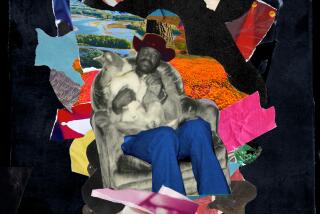RECORD REVIEW : Billie Holiday: The Good, the Bad and the Irrelevant
- Share via
BILLIE HOLIDAY “The Complete Billie Holiday on Verve 1949-1959” Polygram/Verve * 1/2
Here is the most sensuous, the most moving voice jazz has ever known, in the afternoon and evening of her career. Here too are dozens of peerless artists to support her: Sweets Edison, Oscar Peterson, Ben Webster, Jimmy Rowles, Barney Kessel, Buddy De Franco, Tony Scott, Benny Carter.
How not to award all the stars in heaven to such a collection? The reasons are several, based as much on ethical principle as performance. This is an attempt to stretch four or five hours of valid, sometimes exquisite music into a 10-CD box set, running to 11 1/2 hours.
If Billie Holiday were alive today, would Polygram/Verve have dared to release this set, in this form? If the label did, Lady Day surely would react in fury and take steps to have the package withdrawn.
Holiday by the 1950s, when almost all these tracks were recorded, had passed her prime. The sui generis timbre had less assurance, giving way at times to raspy, coarsened sounds. Yet right up to the end she had her good days. But Polygram, in assembling this package, threw in everything: good, bad and irrelevant. There are about 35 aborted, rejected, incomplete or imperfect takes; numerous songs are repeated at two or three sessions, though even the annotator acknowledges that her vocals varied little from take to take.
To elongate the contents even further, there are readings from her ghostwritten pseudo-autobiography; Holiday at rehearsal struggling with songs she doesn’t know; various announcements introducing Lady Day, even a couple in German by me (in 1954 I took her on her only European concert tour); conversations by Holiday in the studio and at the homes of friends; Billie’s band playing a six-minute number without her; Holiday talking to her 15-month-old godson; the child banging away at a piano.
Some of this has historical curiosity value for a single hearing, but do great artists have no right to privacy, even posthumously? On Disc 5, “A Fine Romance” shows up eight times. There is one master take and an alternate take; the rest are incomplete takes or false starts. Thus a three-minute performance is expanded into 15 1/2 minutes of mostly wasted space.
There are plus factors here: a 220-page booklet with many photos to remind us of her transcendent beauty; literate essays by critics and musicians; data galore. Disc 1, with many of Norman Granz’s live “Jazz at the Philharmonic” sessions, benefits from the concert immediacy and finds Billie in superb voice. From that point on, it’s a roller-coaster ride tracing her on-and-off nights.
There are several interesting oddities. Billie sings “My Yiddishe Mama” at someone’s home; Oscar Peterson plays organ backing a memorable version of “Yesterdays.”
Her set at the 1957 Newport Festival is described in the notes as “pitiful,” “forlorn,” “enfeebled,” “disoriented” and “painfully out of tune.” Then why release it? Simply to flesh out quality with quantity in the quest for $160.
Ironically, the very last session--in March, 1959, four months before her death at 44 after a losing battle with addiction--found her in remission from these flaws. Ray Ellis provided splendid arrangements, and the repertoire avoids reuse of the same songs that she had recorded too often. (Many of the tunes in this box had been sung definitively during her years on Columbia--now on “Billie Holiday, the Legacy,” a three-CD set--or later on Decca, as collected in “The Complete Decca Recordings” on two CDs.)
It is sad but perhaps inevitable that this magnificent woman, never fully appreciated in her lifetime, is now, 33 years after her death, capitalized on for all she is currently worth.
More to Read
The biggest entertainment stories
Get our big stories about Hollywood, film, television, music, arts, culture and more right in your inbox as soon as they publish.
You may occasionally receive promotional content from the Los Angeles Times.








